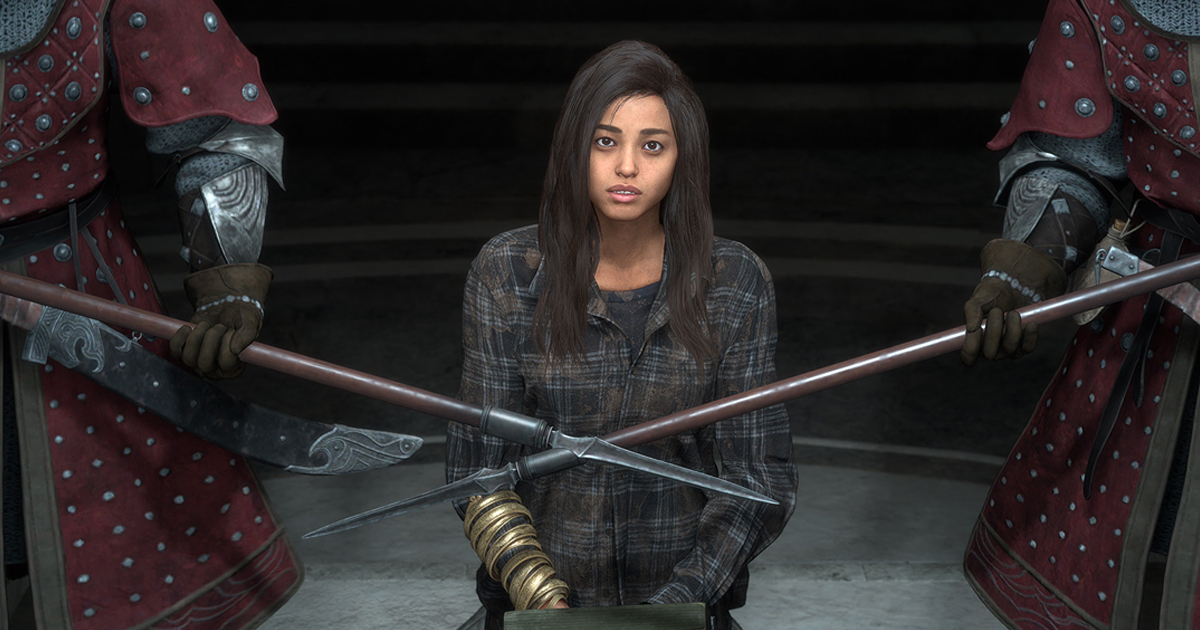Boss Fight creative director Damion Schubert has shared a great thread about the dark side of AAA games’ economics. Players often complain about big companies raising price tags and still releasing titles with loot boxes, but in reality, producing games with nine-figure budgets these days is way more complex than that.
Forspoken, an upcoming action game published by Square Enix, recently caused controversy across the globe with its $70 price on Steam
Schubert shared his thoughts as a response to a thread by streamer Elden Sloth, in which she said that AAA companies won’t get rid of “predatory monetization” even if they raise the base game prices to $70-80.
According to Schubert, it doesn’t work like that. “Corporations exist to make money, yes, but if you aren’t making healthy margins to offset the titles that fail, you end up shuttering studios,” he wrote.
Nope. The economics of the $60 price tag for what are now nine figure budgets are too risky, and the margins become too thin. Corporations exist to make money, yes, but if you aren’t making healthy margins to offset the titles that fail, you end up shuttering studios. https://t.co/VqaH4hBn0j
— Damion Schubert, Zen Designer (@ZenOfDesign) December 13, 2021
He noted that the games industry came to a point — especially with development costs constantly rising — where a studio can’t afford to produce a AAA title anymore unless it is owned or funded by Sony, EA, or another big corporation.
The whole landscape has changed completely over the last year. Of course, studios can make cheaper games without spending $100 million on them, but they won’t be called AAA titles then.
In reality, only big companies and platform holders like Sony and Microsoft can operate budgets like this and spend tons of money on marketing campaigns at the same time.
‘Ridiculous marketing campaigns’ kind of ignores the fact that…. marketing works? It’s not unusual to spend as much marketing a game as dev’ing it, and there’s pretty hard data that says that it’s effective at selling games.https://t.co/ZGXdj5qbcV
— Damion Schubert, Zen Designer (@ZenOfDesign) December 13, 2021
“The problem is that the bar for AAA is set by first-person studios trying to sell that their hardware is more powerful than the other guys, and other AAA games who want to compete basically have to compete with these high-priced hardware demos,” Schubert noted.
He quoted Ultima Online game designer Raph Koster, who described the games industry as “dinosaurs waiting for the meteor to hit” over a decade ago. It is getting harder with each year to make sustainable and profitable AAA games, so the rise of loot boxes and microtransactions is a direct reaction to these forces affecting the market.
Even successful studios like Bethesda feel the need to sell to Microsoft and other corporations to keep producing big-budget AAA games.
“Big companies with tons of overhead aim to earn back 5x (napkin math) what they initially budget for dev to make a game. So if it costs me 100M to build it, the publisher is hoping to make 500M,” Schubert said.
Even if you promise 2X returns, you’re still in the range of being ‘risky’. And when a company compares your project to one that might make back 5X returns, guess which project is going to get funded?
— Damion Schubert, Zen Designer (@ZenOfDesign) December 13, 2021
He went on to explain that the extra $400 million a publisher plans to earn will cover marketing costs and shared resources like IT. That’s why big companies tend to make big games.
“That extra money also pays for all the games that fail,” Schubert explained. “They pay for the game with the 100M budget that only gets 10M back. They pay for the (several) games with the 100M budgets at the company that got killed after spending ‘only’ 10M getting through preproduction.”
This results in big companies no longer being interested in “playing small ball.” They want to fund potential hits and have a portfolio of strong IPs, which can be replenished whether through giving their in-house studios huge budgets or acquiring smaller studios with successful games in their catalogs.
Every now and then you get a ‘Death Stranding’ but those are the exceptions that prove the rule.
— Damion Schubert, Zen Designer (@ZenOfDesign) December 13, 2021
As Schubert noted, this system is flawed, but this is the reality of modern AAA development. Of course, big companies will continue to find new monetization schemes to increase their margins. Players stopped complaining about DLCs, which were once considered predatory, as soon as publishers introduced loot boxes. And Schubert thinks users might eventually accept loot boxes when NFTs in AAA games become standard.
The full thread, in which Damion Schubert answered a lot of questions and dispelled popular misconceptions about the AAA industry, can be found here.

